Spending 14 days in quarantine is difficult. But it’s even harder when you have to avoid loved ones you haven’t seen for the past three months.
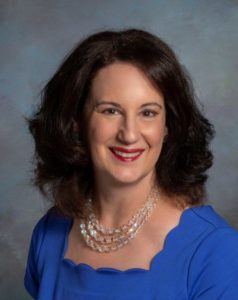
Professor of Political Science and International Affairs Elizabeth Larus
Just ask Mary Washington Political Science Professor Elizabeth Larus, who was recently evacuated from Poland due to the coronavirus outbreak. She had been there combing through archives and meeting with European scholars since late December.
The recipient of a prestigious Fulbright Scholarship grant, Larus – an expert in Chinese politics who earned UMW’s Waple Professorship last year – was researching the impact that China’s Belt and Road Initiative, also known as the new Silk Road, has had on Eastern and Central Europe. Hosted by Marie Curie-Sklodowska University in Lublin, she spent several days visiting Hungary in early March, returning just 48 hours before Poland closed its borders.
“The Polish government was extremely proactive,” she said. “Other than pharmacies, grocery stores and other essential businesses, they shut everything down very quickly.”
Armed with a face mask, gloves and hand sanitizer, Larus managed to catch a flight home before everything was locked down. Sequestered in her room at home for the last two weeks, she kept herself busy working, completing crossword puzzles and organizing her closet.
She also caught up on reading. Larus just finished We Were the Lucky Ones, based on the true story of a Jewish family living in Poland during World War II – not far from where she lived there. The survival tale is fitting for the times we’re living in, said Larus. “After the war was over, they were all together again.”
The same could be said for Larus. After three months – and two long weeks – she finally reunited with her husband and three children on Sunday.
- Elizabeth Larus at a lecture at Marie Curie-Skłodowska University in Lublin, Poland, where she spent three months doing research as part of a Fulbright Scholarship grant.
- Larus and students at Marie Curie-Skłodowska University in Lublin, Poland.
- Larus (center) in Sopot on the Baltic Sea with her son, John, a freshman at UMW, and her daughter, Christina, who was just accepted at Mary Washington.
- Larus with her host Agata Zietek at Marie Curie-Skłodowska University in Lublin, Poland.
- Larus (far right) and her family at the WWII Museum in Gdansk in northern Poland. From left: Larus’ son John, a freshman at UMW; nephew Joseph; sister Tina; and daughter Christina, who will attend at UMW in the fall.
Q: What were some of your most memorable experiences in Poland?
A: Exploring the churches and cathedrals, and enjoying fresh bread, pastries and doughnuts at Polish bakeries and cafés.
Q: Is there anything the U.S. can learn from how China is handling the pandemic?
A: Looking at China and its lack of transparency about its recovery, we shouldn’t get overly optimistic about how fast we’re going to get over this economic setback.
Q: Have you had any virtual contact with your students or colleagues?
A: I’ve responded to departmental emails and to a few students who have reached out. I’m still on educational leave, so I’m not advising or teaching this semester.
Q: What do you miss the most about being on the UMW campus?
A: Interacting with my students.
Q: What’s the most rewarding part of your job?
A: Traveling and engaging with foreign scholars.
Q: The most challenging?
A: Teaching is easy, but it’s hard to evaluate and grade someone else’s work.
Q: What would people be surprised to learn about you?
A: Like Forrest Gump, I’ve been in the right place at the right time. I’ve met the Emperor and Empress of Japan, the President of Taiwan, investor Warren Buffett and children’s author Maurice Sendak; and I’ve had lunch with news broadcaster Tom Brokaw. I was also housemates with Ginni Lamp, Supreme Court Justice Clarence Thomas’ wife.
Q: What’s the first thing you did when you got out of quarantine?
A: Hug my family. My son is on the verge of completing his first year at UMW, and one of my daughters just received her UMW acceptance letter!
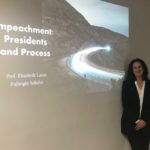

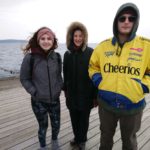
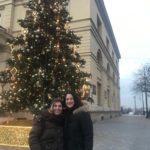
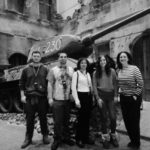
Let’s not forget Bommer and House of Representative Hal Dobbs of the great state of Nebraska.